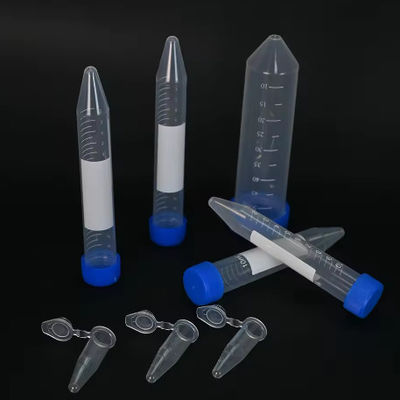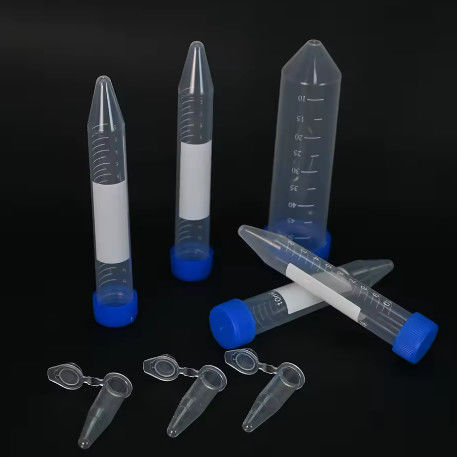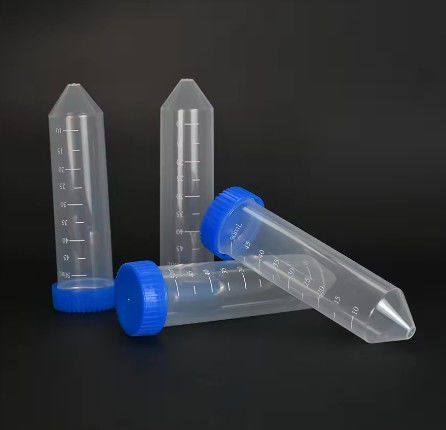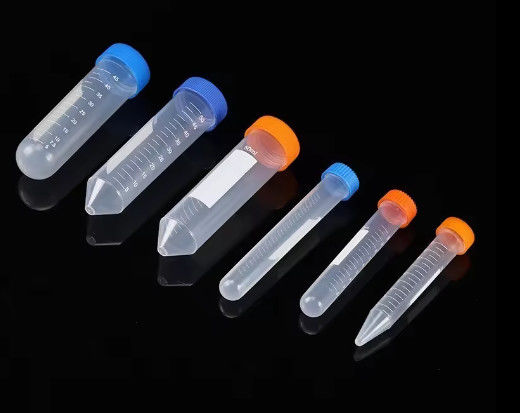-
Highlight
0.5ml Centrifuge Tube
,50ml Centrifuge Tube
,15ml Centrifuge Tube
-
NameCentrifuge Tube
-
MaterialPP
-
Warranty3 Years
-
Customized SupportOEM
-
Dimensions15mm
-
Capacity15ml
-
ApplicationLab Consumables
-
TypeConical Bottom
-
ColorTransparent
-
Packing500 Pcs/carton
-
Place of OriginChina
-
Brand NameHenan
-
CertificationCE
-
Model NumberCan be Customized
-
Minimum Order Quantity5000pcs
-
PriceNegotiable
-
Packaging DetailsIndividual Packaging
-
Delivery Time24-30 days
-
Payment TermsL/C, T/T, Western Union
-
Supply Ability50000000pcs per month
0.5ml 15ml 50ml Centrifuge Tube For Laboratory Centrifuge
0.5ml 15ml 50ml Centrifuge Tube for laboratory centrifuge
Product Description
Centrifuge tubes are cylindrical, tube-shaped containers typically made from durable materials such as polypropylene or polycarbonate. These tubes are designed to hold liquid samples securely during centrifugation and other laboratory procedures.
![]()
Key features
- Material: Centrifuge tubes are commonly made from materials like polypropylene, which is chemically resistant, autoclavable, and can withstand high centrifugation speeds without deformation. Polycarbonate tubes offer transparency for easy sample visibility during procedures.
- Capacity: Centrifuge tubes come in various capacities ranging from a few milliliters to 50 mL or more, allowing for the storage and processing of different sample volumes.
- Graduations: Many centrifuge tubes are equipped with volume markings or graduations for easy and accurate measurement of sample volumes.
- Secure Closure: These tubes feature secure screw caps or snap caps to prevent sample leakage or contamination during centrifugation.
- Compatibility: Centrifuge tubes are compatible with various centrifuges, allowing for a wide range of applications such as cell culture, DNA extraction, protein analysis, and more.
- Safety: The tubes are designed to withstand high speeds and forces exerted during centrifugation, ensuring sample safety and integrity.
- Quality Control: Centrifuge tubes undergo stringent quality control measures to guarantee consistency and reliability in laboratory settings.
- Versatility: Centrifuge tubes can be used for a multitude of applications, including sample storage, centrifugation, mixing, and biochemical reactions.
- Sterilization: Many centrifuge tubes are autoclavable, allowing for safe sterilization and reuse in research and clinical laboratories.
![]()
Application
- Centrifugation of samples for separation of components.
- Storage of liquid samples in a secure and organized manner.
- Pelleting, extraction, and purification of biomolecules.
- Cell culture and microbiology applications.
- Biochemical and molecular biology research.
FAQ
1.What is a centrifuge tube?
Centrifuge Tubes | Fisher Scientific
Centrifuge tubes are used to contain liquids during centrifugation, which separates the sample into its components by rapidly rotating it around a fixed axis. Most centrifuge tubes have conical bottoms, which help collect any solid or heavier parts of the sample being centrifuged.
2.What tubes to use for a centrifuge?
It's essential to choose tubes made from materials that are inert and non-reactive with the substances being centrifuged. Common materials include polypropylene and polycarbonate.
3.What size is a centrifuge tube?
Centrifuge tubes are available in various styles, sizes, and materials. Some things to think about when ordering yours includes: Capacity: The most common sizes are the 15 mL and 50 mL centrifuge tube, and 1 mL to 2 mL microcentrifuge tubes, although sizing can range from a 0.1 mL tube to 100 mL conical tube, or more.
4.What is the difference between a test tube and a centrifuge tube?
Centrifuge Tubes vs. Test Tubes: What's the Difference?
Test tubes are more versatile containers used for a variety of laboratory operations, but centrifuge tubes are specifically designed to handle centrifugation processes. To guarantee safety and precise findings, it's critical to choose the right kind of tube based on your experimental needs.
5.Who uses centrifuge tubes?
medical laboratories
In summary, centrifuge tubes are an essential tool for scientific and medical laboratories, used to separate materials based on their density.




